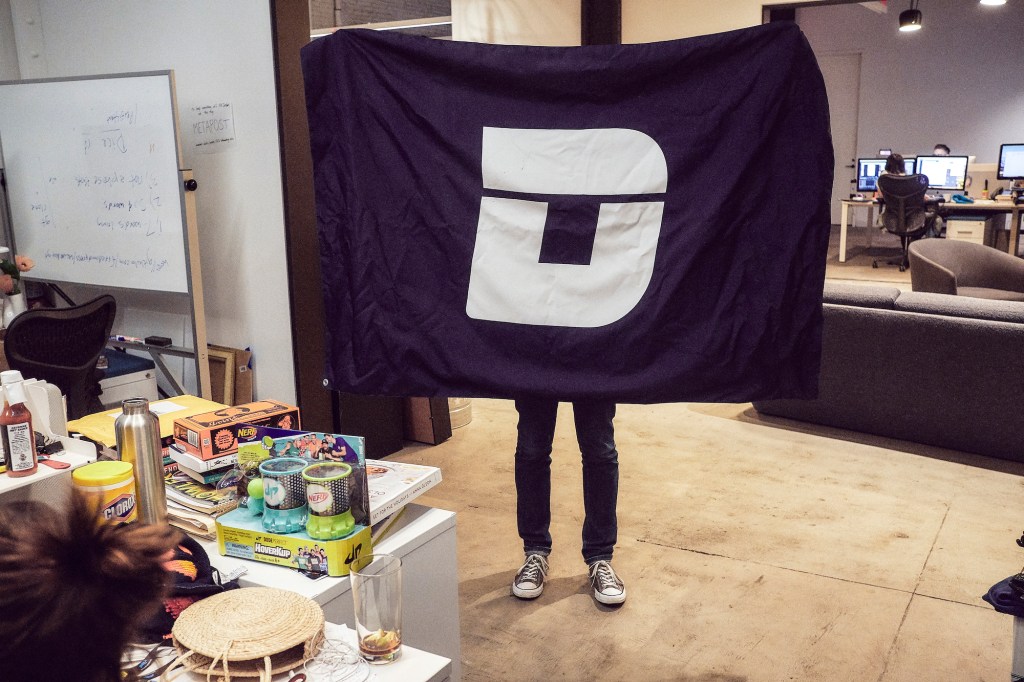For years, Gawker and Deadspin were the only two websites I read every day. I read them because the sites were fun and fearless and unpredictable, with writers who often made me laugh and usually taught me something about how the world works and sometimes broke major national news stories. After Gawker was killed by Hulk Hogan and Peter Thiel, Deadspin was what I read. And now Deadspin is gone, too.
Most of the staff of Deadspin quit Wednesday because its successful, profitable website was purchased by morons who actively loathed it and tried to change the things that made the site popular. After G/O Media CEO Jim Spanfeller fired acting editor-in-chief Barry Petchesky for refusing to “stick to sports,” his staff quit in protest.
Videos by VICE
Deadspin was important to me not just because it was one of the only places on the internet where I could get sports news that wasn’t lobotomized by the implicit or explicit interests of the major sports leagues and sponsors who dominate the industry, but because it felt like home. Drew Magary’s Funbag on Tuesday and Jamboroo on Thursday, Barry’s 9 am blogs about whatever happened in the sports world the night before. These were blogs you could count on, and they were a good way to waste five minutes or an hour.
This is a big loss for me, personally, because I don’t know what I’m going to read in between editing posts for Motherboard. But it’s also a huge loss for journalism and the internet, which feels increasingly sanitized and shaped by corporate interests.
With so many websites and content mills intent to deluge their readers with SEO-optimized headlines or pivot their strategies based on whatever tweaks Facebook is making to its news feed this week, Deadspin’s strategy has remained the same for the last decade: Publish interesting, uncompromising articles that treat your readers like their time matters.
Ten years ago, as an undergrad at the University of Maryland, I had to analyze a media company’s business strategy in a “Business of Media” class. I chose to write about Gawker (and Deadspin), because they were my favorite websites. Even then, the strategy was obvious.
“Each blog is a mix between aggregated content and original editorial content. Each web site might post 20-30 times per day. By having near-constant updates throughout the day, Gawker keeps readers coming back throughout the day,” I wrote. “The websites don’t shy away from controversy, most notably its Deadspin.com sports blog. The blogs are often sued, but often controversial issues, such as Tiger Woods’ sex scandal, are some of the most popular posts … Gawker is one of the most successful blog sites ever. So far, it’s been a new media success story. The company seems to have a bright future, but with the way things can change so quickly, it’s hard to know for sure.”
The paper is not good, because I am not a businessman (we did not solve the “Business of Media” in the class), but “let talented people write good blogs” remains as viable a strategy as any, even today. The cruel irony is Deadspin was an immensely popular, economically sustainable website with audience numbers that most any company—except, apparently Great Hill Partners, which owns it—would love to have in their portfolio.
“The fact that left to our own devices, all we would do is make money for the people who own our website. People read our blogs. People listen to our podcasts. This stuff works,” Deadspin’s David Roth said on the Deadcast podcast Thursday.
“It sucks,” longtime Deadspinner Drew Magary said on the Deadcast. “Not being able to just do your work, like, all you guys and the rest of the staff and I want to do is we just want to fucking work. That’s it.”
The business model of Deadspin changed, but only because it was purchased by private equity vultures who are likely seeking to cut costs, turn a small profit, and dump the company. Deadspin will continue to exist, I’m sure. G/O Media will pay poor wages to struggling permalancers and freelance writers to get them to embed sports highlights from Twitter and put SEO-friendly headlines on them.
The horrifying thing is not just that a dozen talented writers are suddenly out of a job. It’s that it’s still not obvious what comes next. There are increasingly fewer places on the internet like Deadspin. There are few outlets where writers can just write things that people want to read without pulling punches on the rich and powerful people they are beholden to. There are even fewer that simply allow their writers to have Fun Online. We are all worse off for it.
More
From VICE
-

Samir Hussein/Getty Images for Live Nation -

By: Kevin Estrada/Shutterstock -

Jane's Addiction, in happier times (Photo by Paul Natkin/Getty Images) -

3I/ATLAS
